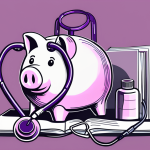Nutrition plays a crucial role in the well-being of cancer patients undergoing treatment. From managing side effects to supporting overall health and recovery, the right diet can make a significant difference in their journey. We will explore the importance of optimal nutrition for cancer patients during treatment, the key nutrients they should focus on, foods to avoid, tips for maintaining a healthy diet, and how to manage treatment side effects through nutrition. Discover the benefits of proper nutrition for cancer patients and learn more about its importance in their treatment journey.
Key Takeaways:
- Eating a balanced and nutrient-rich diet is crucial for cancer patients during treatment to support their immune system, maintain energy levels, and improve overall well-being.
- Key nutrients to focus on include protein, healthy fats, complex carbohydrates, and vitamins and minerals, which can be found in a variety of whole foods such as lean meats, fruits, vegetables, and whole grains.
- It is important for cancer patients to avoid processed foods, sugary foods and drinks, and alcohol, as these can worsen treatment side effects and negatively impact overall health and well-being.
Why is Optimal Nutrition Important for Cancer Patients During Treatment?
Optimal nutrition is essential for cancer patients undergoing treatment as it can help manage treatment side effects, maintain energy levels, and support overall health and recovery. Ensuring a balanced diet during chemotherapy or radiation therapy can significantly improve a patient’s quality of life and treatment outcomes.
What Are the Benefits of Proper Nutrition During Cancer Treatment?
Proper nutrition during cancer treatment offers numerous benefits, including the management of side effects, support of immune function, and maintenance of a healthy weight.
A well-balanced diet rich in vitamins, minerals, and antioxidants can play a crucial role in fortifying the body’s defense system against infections and illnesses. By consuming a variety of colorful fruits, vegetables, whole grains, lean proteins, and healthy fats, individuals undergoing cancer treatment can enhance their immune function and improve their overall wellness.
What Are the Key Nutrients to Focus on During Cancer Treatment?
During cancer treatment, focusing on key nutrients such as protein, healthy fats, complex carbohydrates, and essential vitamins and minerals is crucial to support overall health and recovery.
Protein
Protein is vital for cancer patients as it helps maintain muscle tone, provides energy, and aids in the repair of tissue damage caused by treatment.
Incorporating a variety of protein sources into one’s diet is crucial for cancer survivors to meet their nutritional needs. Plant-based proteins like beans, lentils, and quinoa offer fiber and essential nutrients alongside the protein content. Lean meats such as chicken, turkey, and fish provide high-quality protein with lower saturated fats, promoting overall heart health post-cancer treatment. Dairy products like Greek yogurt and low-fat milk not only supply protein but also offer calcium for bone strength and probiotics for gut health.
Healthy Fats
Healthy fats are essential as they provide concentrated energy, help reduce inflammation, and support immune function during cancer treatment.
Nuts, seeds, and avocados are excellent sources of healthy fats that can be beneficial for cancer patients.
Omega-3 fatty acids found in walnuts and flaxseeds have anti-inflammatory properties, which can help manage inflammation that often accompanies cancer treatments. Adding avocado to salads or sandwiches can not only enhance the flavor but also provide a good dose of monounsaturated fats that support heart health.
Complex Carbohydrates
Complex carbohydrates are important for providing sustained energy and helping to maintain stable blood sugar levels, which is crucial for supporting the immune system during cancer treatment.
Some excellent sources of complex carbohydrates include whole grains like quinoa, brown rice, and oats, as well as fruits such as apples, berries, and oranges. Vegetables like sweet potatoes, broccoli, and spinach are also rich in complex carbs. These foods are beneficial for cancer patients because they release energy slowly, preventing rapid spikes in blood sugar levels and providing a steady source of fuel for the body. Including a variety of these nutrient-dense options in the diet can help ensure patients have the stamina needed to withstand the challenges of cancer treatment.
Vitamins and Minerals
Vitamins and minerals are critical in preventing deficiencies and supporting the immune system, which can be compromised during cancer treatment.
In particular, multivitamins play a crucial role in ensuring that the body receives a wide spectrum of essential nutrients during this challenging time.
One essential vitamin that deserves attention during cancer treatment is vitamin D. Vitamin D is known for its role in supporting bone health and immune function, two aspects that can be affected by the disease and its treatments. It also helps in regulating inflammation and cell growth.
What Foods Should Cancer Patients Avoid During Treatment?
During cancer treatment, it is important for patients to avoid certain foods that can negatively impact their health, such as processed foods, sugary foods and drinks, and alcohol.
Processed Foods
Processed foods should be avoided during cancer treatment as they can contribute to inflammation and weight gain, both of which can negatively affect cancer recovery.
Many processed foods are laden with preservatives, artificial flavors, and additives that can be detrimental to overall health. These ingredients have been linked to an increased risk of chronic diseases, including cancer.
Instead, opt for whole foods such as fruits, vegetables, whole grains, and lean proteins. These choices are rich in essential nutrients and antioxidants that support the body’s healing process and help boost immunity.
By replacing processed foods with whole, natural options, individuals undergoing cancer treatment can better manage their health and improve their chances of recovery.
Sugary Foods and Drinks
Sugary foods and drinks can lead to insulin resistance and weight gain, which may complicate cancer treatment and recovery.
Along with these risks, excessive sugar intake can also contribute to inflammation in the body, leading to a range of health issues.
- This inflammation can exacerbate conditions such as heart disease, diabetes, and even mental health disorders.
- Consuming too much sugar can negatively impact your energy levels, causing spikes and crashes throughout the day.
- Instead of reaching for sugary treats, consider healthier alternatives. Fruits like berries and apples can satisfy your sweet tooth while providing essential nutrients and fiber.
Alcohol
Alcohol consumption should be minimized during cancer treatment as it can weaken the immune system and interfere with the absorption of essential vitamins and minerals.
Alcohol can also interact negatively with many medications prescribed for cancer, leading to reduced efficacy and potential health risks. Excessive alcohol intake is linked to an increased risk of developing various types of cancers, making it crucial to limit consumption for overall health and well-being.
To reduce alcohol intake, individuals undergoing cancer treatment can consider seeking support from healthcare professionals, joining support groups, practicing mindfulness techniques, or finding alternative social activities that do not revolve around alcohol. Making small changes gradually can lead to significant improvements in health outcomes during cancer treatment and beyond.
How Can Cancer Patients Manage Treatment Side Effects Through Nutrition?
Managing treatment side effects through nutrition can significantly improve the quality of life for cancer patients, helping to alleviate symptoms such as nausea, fatigue, mouth sores, and constipation.
Nausea and Vomiting
To manage nausea and vomiting, cancer patients can benefit from eating small, frequent meals and incorporating ginger into their diet.
Staying hydrated is crucial in easing nausea symptoms. Sipping on clear fluids like water, herbal teas, or electrolyte drinks throughout the day can help keep the body hydrated and combat feelings of queasiness.
Avoiding strong odors, particularly those of fried or greasy foods, can prevent exacerbating nausea. Opting for bland, easily digestible foods like plain crackers, toast, or bananas can be gentler on the stomach and aid in managing discomfort.
Fatigue
To combat fatigue during cancer treatment, it’s important to consume energy-boosting foods like those rich in protein and complex carbohydrates.
Including foods high in antioxidants such as leafy greens, berries, and nuts can also aid in reducing inflammation and boosting immune function. Incorporating small, nutrient-dense snacks throughout the day can help maintain steady energy levels. Meal planning ahead of time and having easily accessible, healthy options on hand can prevent reliance on processed or sugary foods that may lead to energy crashes.
Mouth Sores
Mouth sores can make eating painful, so cancer patients should opt for soft foods and stay well-hydrated to ease discomfort.
Soft foods are ideal for those experiencing difficulty with chewing and swallowing due to mouth sores. Examples of soft foods include yogurt, mashed potatoes, smoothies, oatmeal, and scrambled eggs. These foods are gentle on the mouth and provide necessary nutrients without causing further irritation.
In cases where it is challenging to meet nutritional needs through regular diet alone, nutritional supplements can play a crucial role. Supplements like protein shakes, liquid meal replacements, and vitamin-enriched drinks can help ensure that essential nutrients are being consumed even when appetite is decreased.
Constipation
Constipation can be managed by increasing fiber intake through fruits and vegetables, and ensuring proper hydration.
Including whole grains, legumes, and nuts in the diet can further aid in relieving constipation during cancer treatment. Fiber-rich foods not only promote digestive health but also provide essential nutrients for overall well-being. It is crucial to maintain a balanced diet that incorporates a variety of foods to support bowel regularity. Practicing mindful eating habits, such as chewing food slowly and avoiding large meals, can assist in preventing digestive issues. Consulting with a healthcare professional or a nutritionist for personalized dietary recommendations is recommended for individuals undergoing cancer treatment.
What Are Some Tips for Maintaining a Healthy Diet During Cancer Treatment?
Maintaining a healthy diet during cancer treatment is crucial, and can be achieved through meal planning, incorporating nutrient-dense foods, staying hydrated, and consulting a registered dietitian.
Plan and Prepare Meals Ahead of Time
Planning and preparing meals ahead of time can help cancer patients conserve energy and ensure they have convenient, nutritious options available.
One effective technique for meal planning during treatment involves creating a weekly menu that incorporates a balance of proteins, carbohydrates, and vitamins. This allows for a variety of flavors and nutrients while ensuring the body receives essential sustenance in its weakened state.
In addition, segmenting meal preparation into designated times, such as utilizing weekends for bulk cooking, can further reduce daily stress and fatigue. By storing pre-made meals in the freezer or refrigerator, patients can quickly access their nourishing dishes without the need for extensive cooking each day. This method not only saves time but also promotes consistent, healthy eating habits.
Incorporate Nutrient-Dense Foods
Incorporating nutrient-dense foods into the diet ensures that cancer patients receive essential vitamins, minerals, protein, and healthy fats to support their health.
For example, foods such as spinach, which is rich in iron and antioxidants, can help boost energy levels and strengthen the immune system. Foods like broccoli provide a good source of fiber and vitamins C and K, aiding in digestion and promoting bone health.
Other nutrient-dense options include quinoa, a complete protein that can support muscle repair and growth, as well as salmon, packed with omega-3 fatty acids that have anti-inflammatory properties beneficial for reducing chemotherapy-related side effects.
Stay Hydrated
Staying hydrated is crucial for cancer patients as it helps to manage side effects and maintain overall health during treatment.
Dehydration can worsen symptoms such as fatigue, nausea, and digestive issues, which are already challenging for cancer patients. Ensuring proper hydration can also improve the efficacy of treatments and help the body recover faster. To stay hydrated,
- carry a water bottle everywhere you go
- set reminders to drink water regularly
- consume hydrating foods like fruits and vegetables
These simple habits can make a significant difference in a patient’s well-being and treatment outcomes.
Consider Working with a Registered Dietitian
Working with a registered dietitian can provide personalized nutrition guidance that is tailored to the specific needs of cancer patients during treatment.
Registered dietitians are experts in the field of nutrition and can help cancer patients navigate the complex dietary challenges that may arise during their treatment. They can assess each patient’s individual circumstances and medical history to develop a customized diet plan that addresses their nutritional requirements and supports their overall health and well-being.
Consulting with a registered dietitian can offer valuable support in managing treatment side effects such as nausea, loss of appetite, and changes in taste perception. By collaborating with a dietitian, cancer patients can gain access to evidence-based nutritional advice and strategies to optimize their nutrition intake, enhance their energy levels, and improve their quality of life throughout their treatment journey.
Frequently Asked Questions
What is the importance of optimal nutrition for cancer patients during treatment?
Optimal nutrition is crucial for cancer patients during treatment as it can help manage treatment side effects, maintain energy levels, and support overall health and recovery. Adequate nutrition can also improve treatment outcomes and reduce the risk of complications.
What are some key nutrition recommendations for cancer patients during treatment?
Some key nutrition recommendations for cancer patients during treatment include consuming a balanced diet with a variety of fruits, vegetables, whole grains, and lean proteins. It is also important to stay hydrated and limit or avoid processed and high-fat foods.
How does optimal nutrition help manage treatment side effects?
Optimal nutrition can help manage treatment side effects by providing the necessary nutrients and energy to support the body’s healing and recovery processes. Eating well can also help reduce the severity of common side effects such as nausea, diarrhea, and fatigue.
Can optimal nutrition improve treatment outcomes for cancer patients?
Yes, adequate nutrition can improve treatment outcomes for cancer patients. It can help maintain a healthy immune system, which is crucial for fighting cancer and preventing infections. Proper nutrition can also support the body’s ability to heal and recover from treatments.
Are there any specific foods that cancer patients should include in their diet during treatment?
While there is no one specific food that can cure cancer, cancer patients should focus on consuming a variety of nutrient-rich foods. This includes fruits and vegetables that are rich in antioxidants and anti-inflammatory properties, as well as lean proteins and whole grains for energy and muscle strength.
How can cancer patients ensure they are getting optimal nutrition during treatment?
Cancer patients can ensure they are getting optimal nutrition during treatment by working with a registered dietitian who specializes in oncology. They can create a personalized nutrition plan that takes into consideration the patient’s specific needs, treatment regimen, and any dietary restrictions or side effects they may be experiencing.





